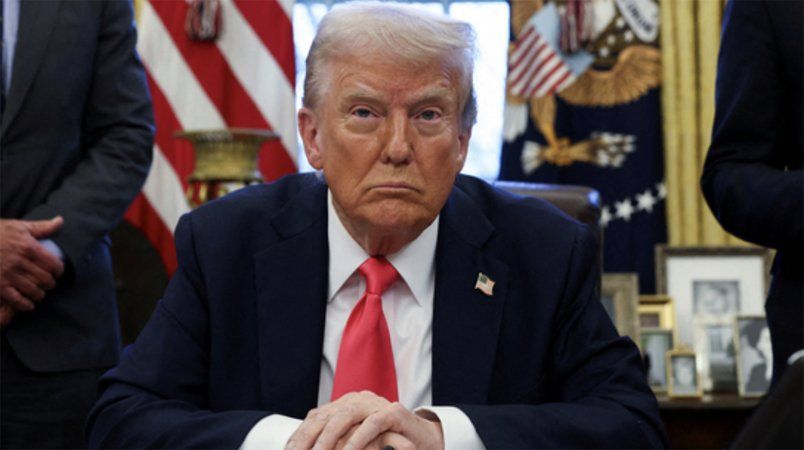President Donald Trump has already fumbled a big advantage with a voting bloc that delivered election wins for him and other Republican candidates last year.
The president's approval rating among low-engagement voters has fallen 30 points since he returned to office – the biggest drop for any group – after they backed him by a double-digit margin in November, according to data journalist G. Elliott Morris.
"The GOP’s big advantage with hard-to-reach voters has evaporated as economic turmoil & toxic politics turns them away from Trump," Morris posted on Bluesky.
Polling shows that opt-out voters who powered his return are now abandoning the president even harder than engaged voters, declining from 44 percent support in February among opt-out voters to just 31 percent by April, a 13-point decline that's even deeper than the seven-point drop for voters who say they somewhat strongly supported him in the election.
"Of course, the economic conditions that led to Trump’s victory are no longer the conditions Americans find themselves in," Morris wrote. "Conditions are much worse today. But if we think these voters are more reactive to economic conditions, and less sensitive to messaging on things like immigration and budget cuts, would that mean this bloc is actually anti-Trump now?"
Other surveys show similar findings that those who pay the least attention to the news and are the least involved in politics are now the least likely to support the president, rather than the most likely – a complete inversion less than four months into his presidency than the relationship between engagement and Trump support in 2024.
ALSO READ: ‘Pain. Grief. Anger’: Families heartbroken as Trump backlash smashes adoption dreams
"But I’m not sure this is a political shift, so much as it is the result of a mass of voters conditioning their support for the president on economic conditions, especially recent local economic indicators (especially inflation), regardless of which party is in charge," Morris wrote.
Low-engagement voters are less likely to view politics through partisan lenses, so they might be more reactive to economic conditions, and as fewer Americans regularly read a newspaper or even watch TV news, that could create an environment where it's increasingly difficult for incumbents to win.
"If this theory is right, it means that incumbents are also uniquely sensitive to economic contractions, since there is little they can do to counter narratives," Morris wrote. "YouGov's data indicate that about half of the public follows news no or only some of the time. How should Biden have told them things were looking up in June 2024? How should Trump address their deep (and justified) concerns now?"
"Trump has lost arguably the best advantage the Republicans had for the future," Morris wrote. "And if conditions remain poor, they may lose ground, not gain it. After all, it is their mess — isn't this how democracy is supposed to work, anyway?"
Leave a Comment
Related Post
